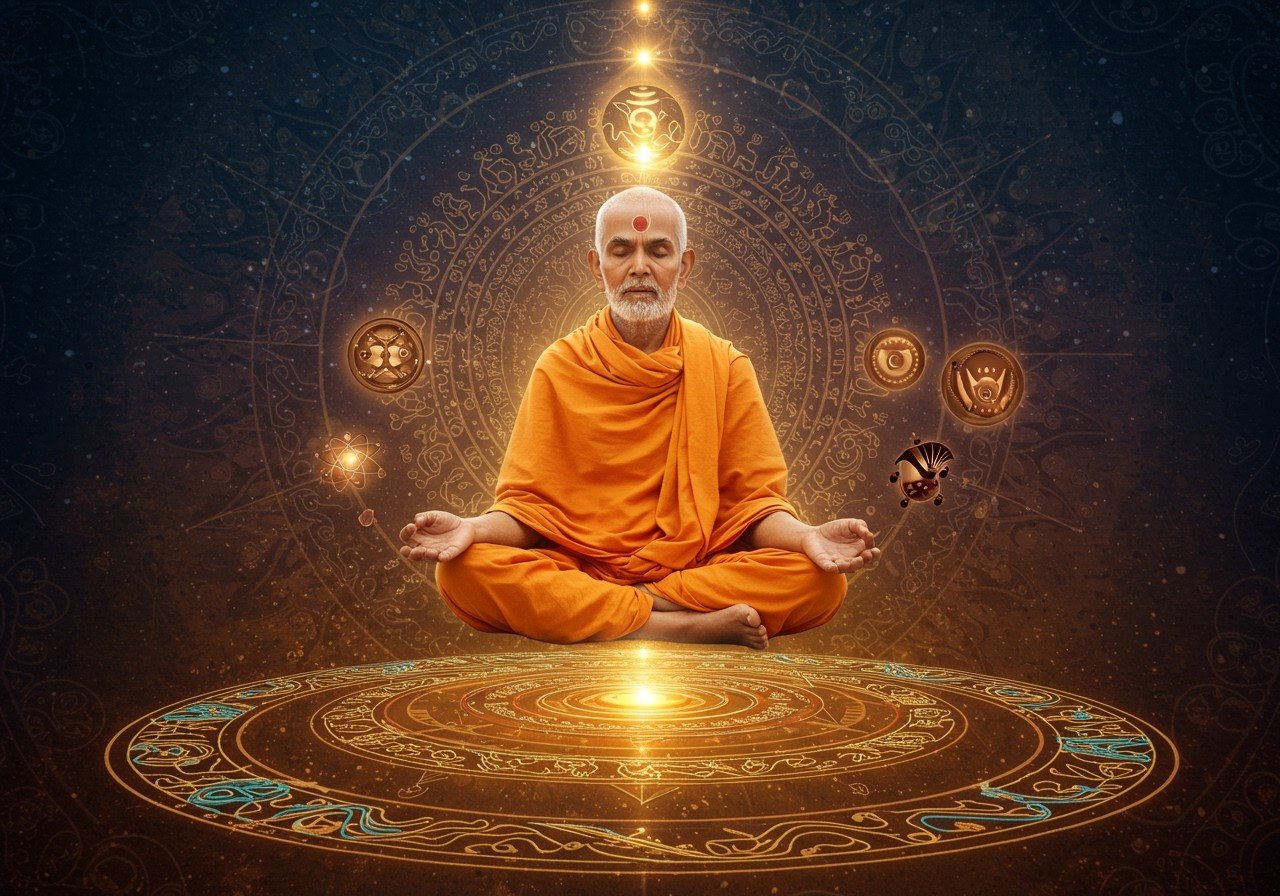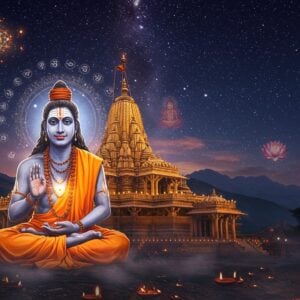
Ajivika philosophy, an ancient Indian religious and philosophical tradition, emerged around the 5th century BCE, alongside Buddhism and Jainism. This tradition persisted until about the 14th century CE. The term ‘Ajivika’, derived from ‘Ajiva’ meaning livelihood, reflects the sect’s emphasis on fate and predestination. Founded by Makkhali Gosala, a contemporary of both the Buddha and Mahavira, the founder of Jainism, the Ajivikas developed a distinct worldview centered around the concept of *niyati*, or absolute determinism.
Core Tenets of Ajivika Philosophy
Ajivika philosophy stands out for its unique tenets, particularly its doctrine of determinism. Let’s delve into some of the core beliefs:
- Determinism (Niyati): This central doctrine asserts that everything is predetermined by fate and cosmic principles, leaving no room for free will. Ajivikas believed human actions have no bearing on outcomes, a concept that distinguished them from other contemporary schools of thought. This belief in a fixed destiny permeated every aspect of their philosophy.
- Rejection of Karma: Unlike Buddhism and Jainism, Ajivikas rejected the concept of karma. They argued that religious or ethical practices have no effect on one’s future, a perspective that challenged the prevailing understanding of moral responsibility and spiritual progress. This unique viewpoint further solidified their deterministic stance.
- Soul (Atman): Ajivikas believed in the existence of a soul (*atman*), but their interpretation differed from other schools. They posited that the soul has a material form, which aids in meditation. The soul, they believed, transmigrates through countless rebirths until it reaches its preordained salvation. This material conception of the soul is a distinctive feature of Ajivika thought.
- Atheism: Ajivikas were largely considered atheists. They didn’t believe in a creator god or divine intervention. This atheistic stance set them apart in the religious landscape of ancient India, where most traditions acknowledged some form of divine power.
- Elements and Atoms: Similar to the Vaisheshika school, Ajivikas developed a theory of elements and atoms, further demonstrating their philosophical inquiry into the nature of reality. This atomic theory reflected their attempt to understand the physical world through a deterministic lens.
- Non-Violence: Tamil literature suggests that Ajivikas practiced non-violence (*ahimsa*) and adhered to a vegetarian lifestyle, principles shared with other contemporary traditions like Jainism and Buddhism. This ethical commitment to non-violence further shaped their daily practices.
Practices and Lifestyle
Ajivika practitioners led an ascetic life, often wandering as naked monks to symbolize their detachment from material possessions. Their practices were characterized by:
- Asceticism: Known for their austere practices, Ajivikas often lived as wandering ascetics. They embraced extreme self-denial as a means to spiritual liberation. Some historical accounts describe them as naked monks, highlighting their renunciation of worldly attachments.
- Renunciation and Alms-giving: They renounced worldly possessions and relied on alms for sustenance. Living a disciplined life, they sought liberation through detachment and austerity. This reliance on the generosity of others further emphasized their commitment to a minimalist existence.
- Ecstatic States: Ajivikas employed dance and music to induce ecstatic states of consciousness. They believed these altered states could provide insights into the nature of reality and accelerate their path to liberation.
Poojn.in offers a variety of holy cosmetics, holy food, holy idols, holy jewelry and holy utensils to support your spiritual journey. We also offer a selection of jaribooti (herbs) that may be relevant to traditional practices.
Historical Context and Decline
The Ajivika sect originated in the region of modern-day Bihar, gaining prominence during the Mauryan Empire. Emperor Bindusara (320-272 BCE) was said to be a follower. Emperor Ashoka (304-232 BCE) initially patronized the Ajivikas before converting to Buddhism.
- Decline: The sect’s influence waned with the rise of Buddhism and Jainism. Their esoteric doctrines and rigid adherence to determinism may have also contributed to their decline. By the Shunga period (2nd century BCE), Ajivikas had become relatively insignificant in northern India, though they may have persisted in South India until the 14th century CE. The rise of other, more accessible spiritual traditions likely overshadowed the Ajivikas.
- Lost Texts: The original Ajivika texts are lost, leaving scholars to rely on secondary sources, primarily from Buddhist and Jain texts. These sources often present a critical, and potentially biased, view of Ajivika doctrines. This lack of primary sources makes understanding the nuances of their philosophy a significant challenge.
Ajivika Philosophy in the Modern World
While the Ajivika sect no longer exists as an organized religion, its unique philosophical perspective remains relevant. Ajivika’s deterministic views spark intriguing discussions about free will versus fate, adding to contemporary philosophical discourse. Its emphasis on detachment and inner peace may resonate with those exploring mindfulness and meditation practices. Check out these related blog posts on Bhakti Yoga, Dharma and Karma, and Hinduism’s Global Reach.
Discover a range of products at poojn.in, including Sarbosadhi, Mahosadhi, Green Mung Dal, and Jaifal (Nutmeg), that can enhance your spiritual practices.
Conclusion
Ajivika philosophy provides a compelling glimpse into ancient Indian thought. Its focus on determinism, unique spiritual practices, and historical context offer valuable insights for those seeking a deeper understanding of India’s diverse philosophical landscape. Though the sect itself has vanished, the legacy of Ajivika thought continues to intrigue and inform contemporary discussions about fate, free will, and the human condition.


